5 Tips from the Gardening Bench #2
Welcome to another Segment of 5 Tips from the Gardening Bench. I have 5 new tips that are relevant to our late summer gardens.
This time of year can be glorious in the garden. Vegetables are ripening, hydrangeas are starting to bloom. Zinnias are looking beautiful! I could go on and on. So much glory in my gardens right now!
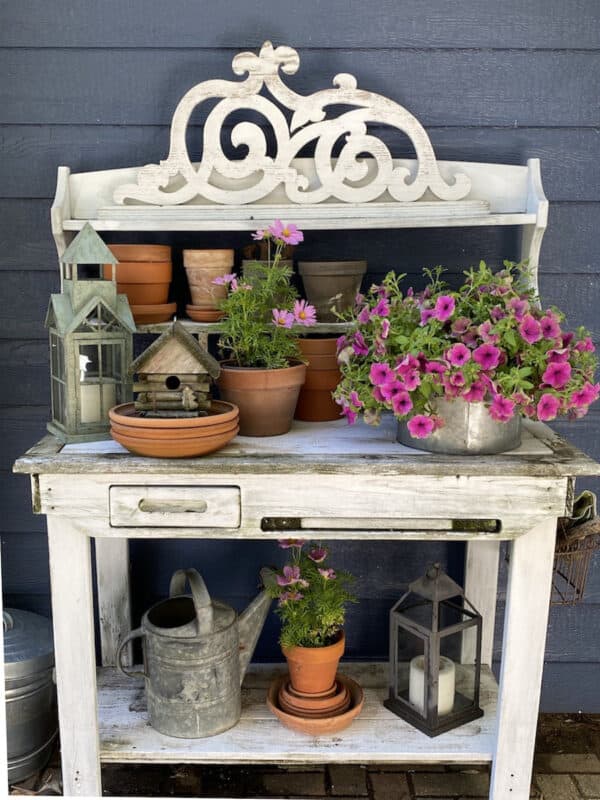
On my blog, Living Large in A Small House, I may sometimes use affiliate links, which means a small commission is earned if you purchase via the link. The price will be the same whether you use the affiliate link or go directly to the vendor’s website using a non-affiliate link. You can find my full Disclosure Policy HERE
5 Tips From the Gardening Bench
As beautiful as things are in the garden, there are some things that I’m having issues with so let’s jump right into the first one! It’s a big one for me because I love my tomatoes
1. Tomato Blight
Tomato blight can quickly wipe out your crop if you don’t take care of it right away. I’ve been treating it as soon as I found it but during my week away from home it got out of control.
Consequently, I probably won’t have a very good crop this year!
What is Tomato Blight?
It’s actually a fungal infection that attacks the leaves at the base of the plant and eventually the blight spreads to the entire plant, if not treated. It’s aggressive so you have to treat it immediately when you see it.
The common symptoms are yellow/brown spots that start on the lower leave and can eventually cover the entire crop.
Wet weather or overly wet conditions contribute to the fungal spores spreading.
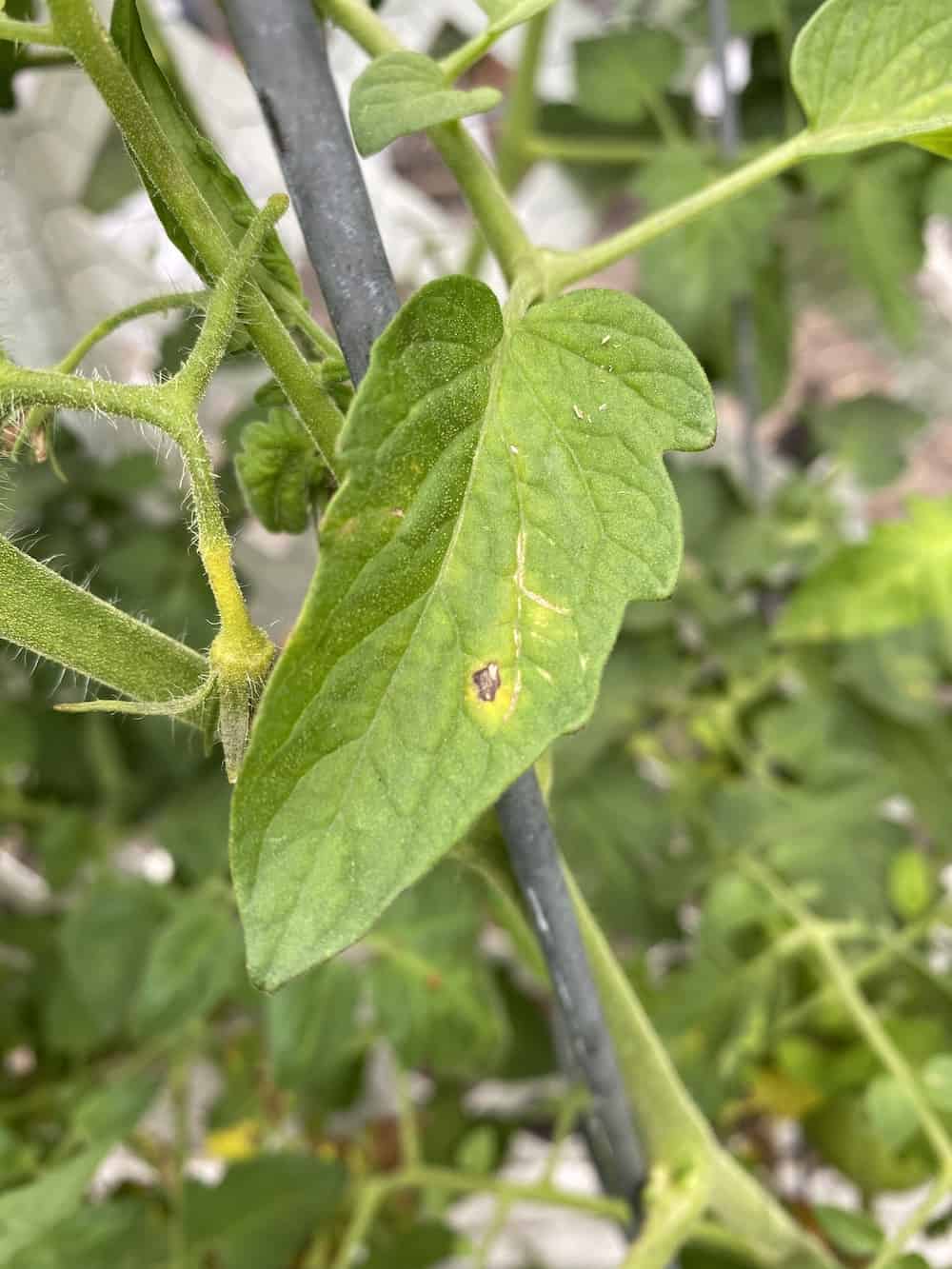
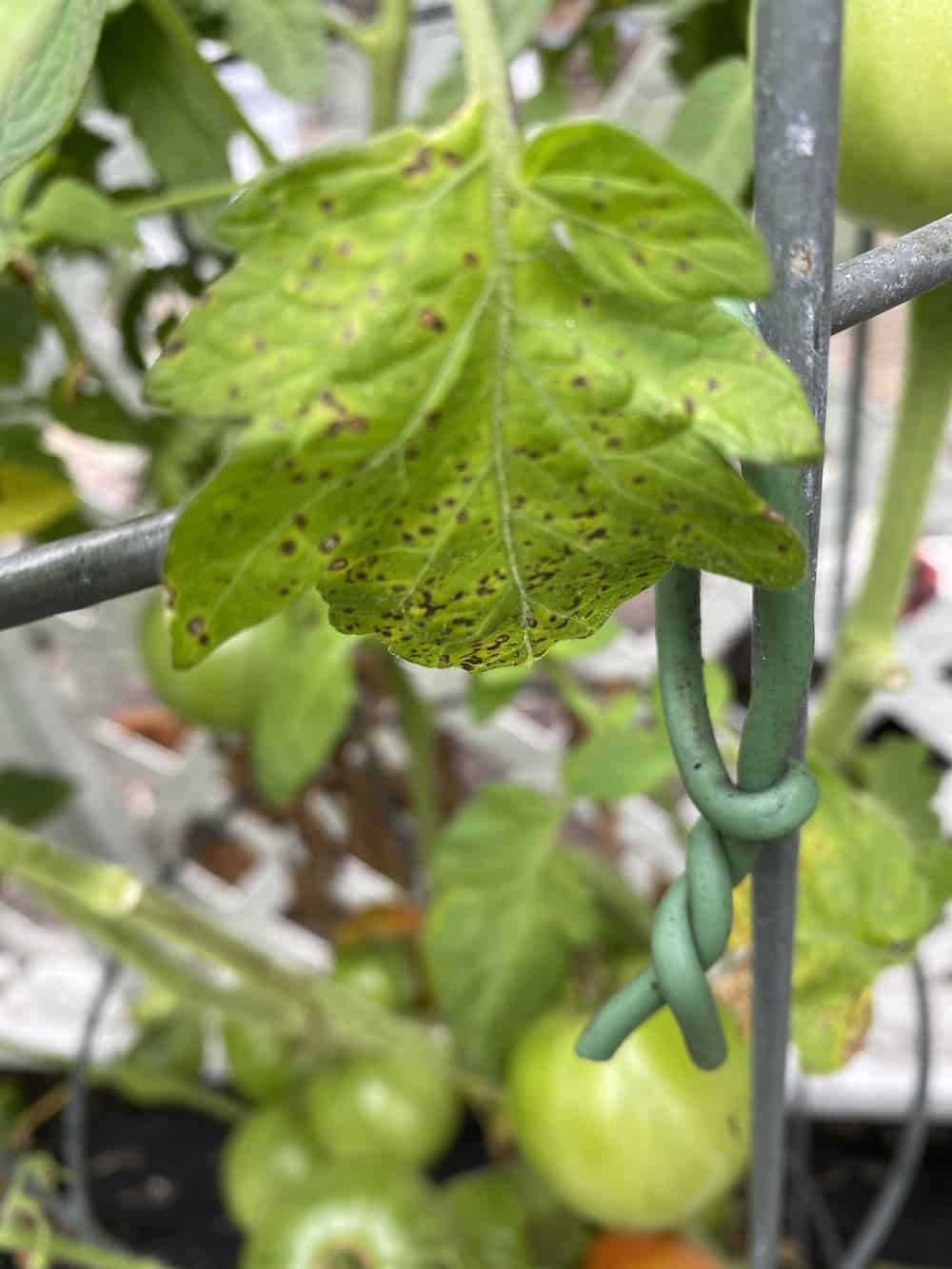
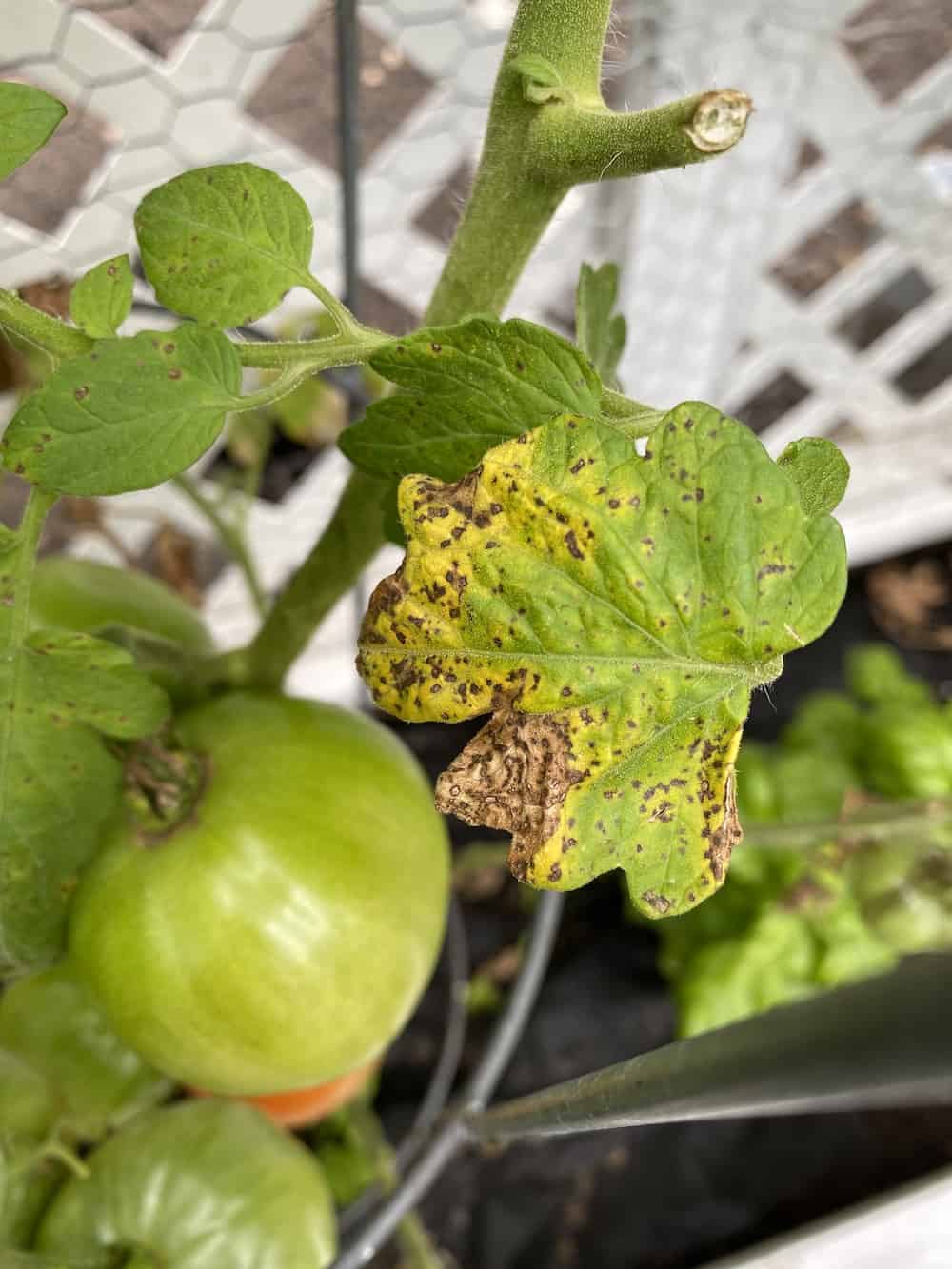
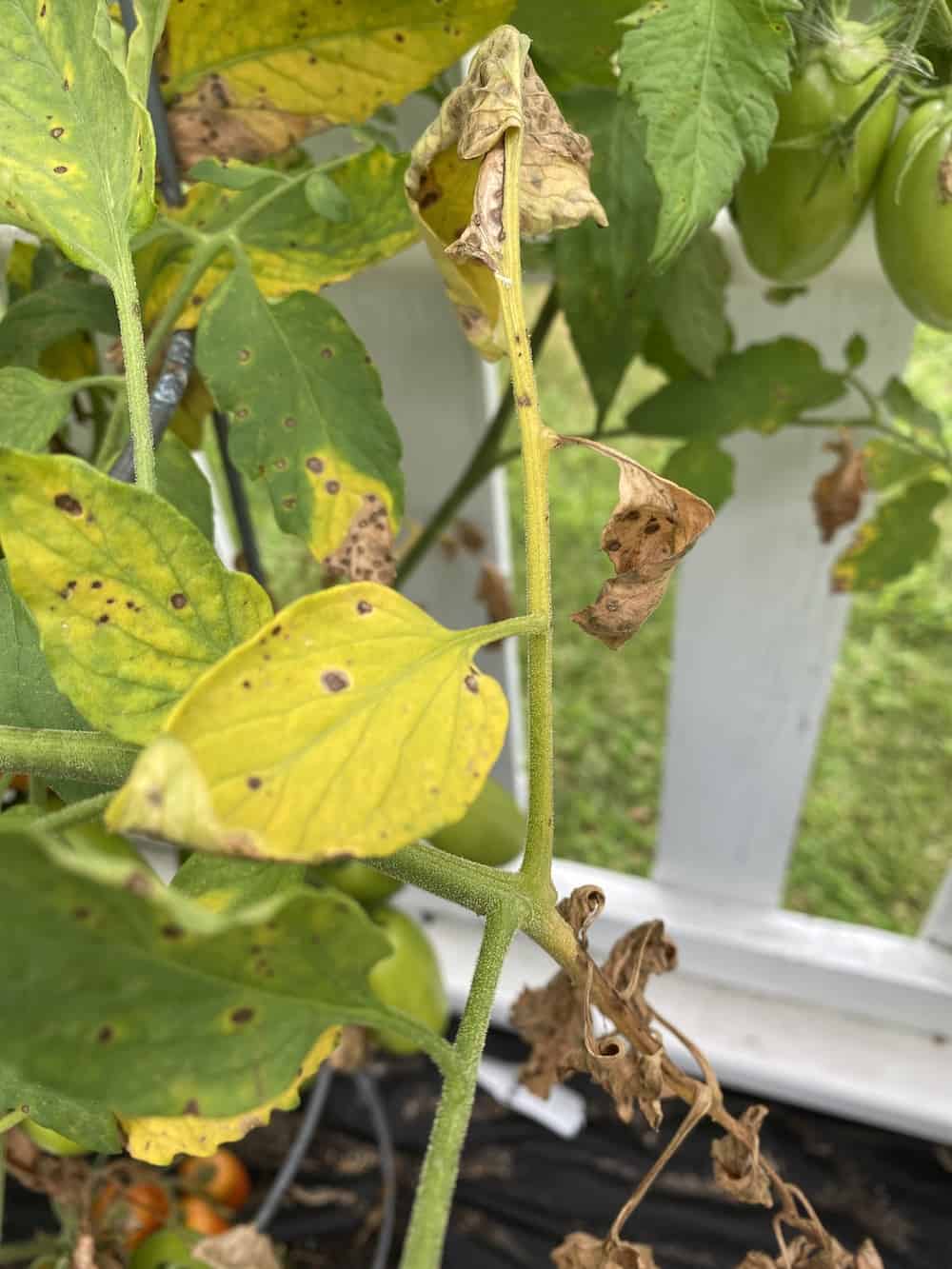
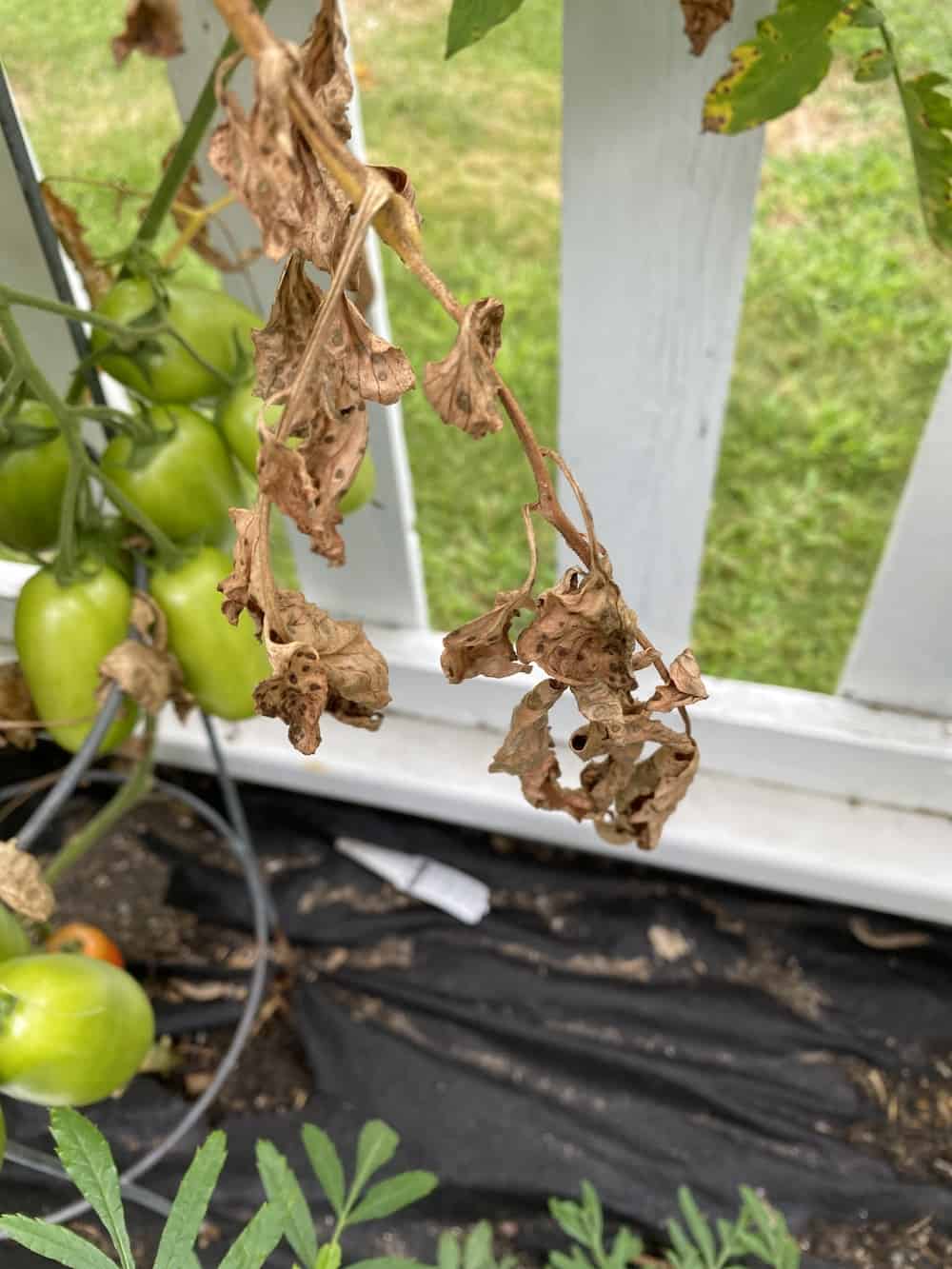
Tomato Blight Treatment
- Remove the affected stems and dispose of the plant debris in the garbage. DO NOT PUT IT INTO THE COMPOST PILE
- Sterilize the tool you used after you’re done so you don’t recontaminate
- Use a treatment. You can get organic fungicides but I prefer to try my homemade recipe first to try to control the blight
- Only water in the morning and if your watering system is on a timer, turn it off for a while if you’ve had a lot of rain. Keep an eye on weather conditions

Homemade Tomato Fungicide
Equipment
- large pitcher
- spray bottle
Ingredients
- 1/2 tsp baking soda (heaping)
- 1 tbsp vegetable oil
- a few drops of liquid dishwashing soap
- 1 quart water
Instructions
- Mix all ingredients together, put into spray bottle and spray plants
Prevention for New Year
- Crop Rotation
- Use drip irrigation or soaker hose watering systems
- Mulch your plants with wood chips
- Buy resistant varieties of plants and/or seeds
- Use cages for vertical growth and give the plants space to breath
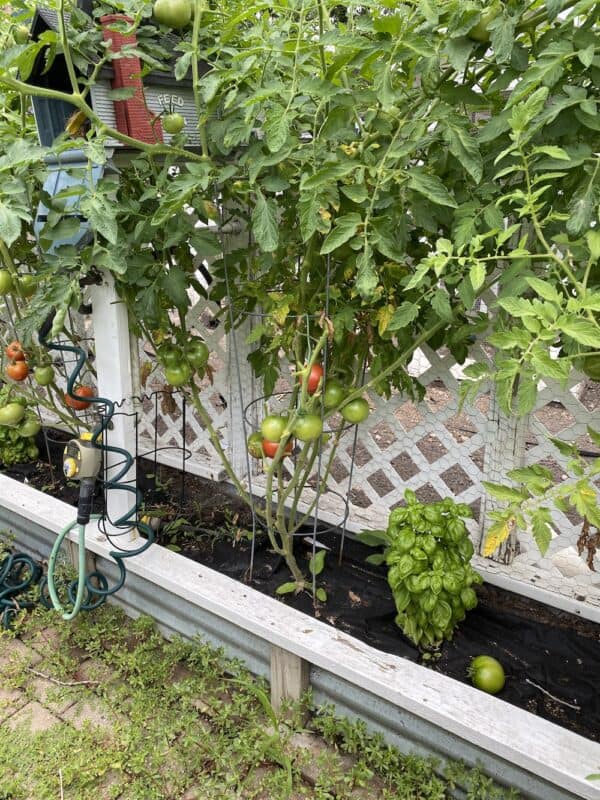
2. Weeding
Now is the time to get on top of the garden weeding!
I know – I know you’re tired of gardening but from the picture above you can see what one week away from my gardens did to the path. Being proactive will help keep the weeds in the spring down.
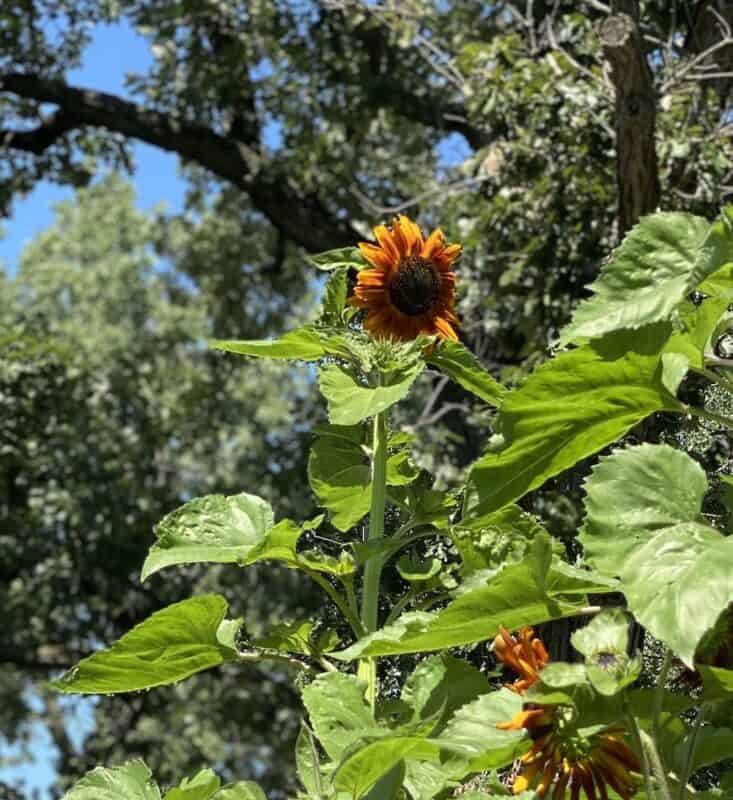
It is so worth the effort now!
I set my alarm for one hour every day to go out and weed. It works!
3. Great Deals on Perennials

Now is the time when nurseries are starting to have great deals on perennials, shrubs, and trees.
There are some obvious holes in my perennial beds that need some filling so I keep my eye open for sales. I typically can get what I’m looking for at 50% or more off in the next two months. They still have lots of time to establish a sound root system before the winter.
Make sure you’re choosing the right plant for the right location (considerations: sun, shade, soil conditions, etc)
Don’t forget to water these new plantings. Give them a good soak every day if it’s been dry and hot. Every other day if we’ve had some rain.
Make sure you read this article about what to plant in the fall so that when you are out shopping you can also add these things to your list.
4. Divide Plants for Free
I have some plants that can be divided now and have time to establish new roots and fill in some of my bare areas. Plants you can divide now are typically spring-blooming plants
You should only divide plants that are 3-5 years old or are starting to show some bald areas in the center.
Some of the plants I will divide in the next few weeks are:
- Peonies – Late July and into August is a great time to divide peonies.
- Irises – My Irises have created circles with nothing growing in the center – it’s time to divide.
- Hostas – Many would argue that hostas should be divided in the spring but I find that I can divide them just about anytime with little to no harm to the plant.
5. It’s time to start preserving my garden harvest
I will be starting to can tomatoes this upcoming weekend. Check out this blog post if you want to learn how to have garden fresh tomato flavor all year long!
My onions will come up this week and form a beautiful braid to be hung in my pantry.
I have one cabbage that I’m going to learn how to ferment! That should be interesting. I will use the method, Lisa, from Farmhouse on Boone uses. You can find it HERE.
I have a huge zucchini that didn’t get seen while I was away so I’m going to grate that up and freeze it for use during the winter.
I’ll be making pesto soon and freezing what I don’t use into cubes. Read about that HERE
My cucumbers were late in starting but I might be able to squeeze a few jars of pickles out in the next few weeks.
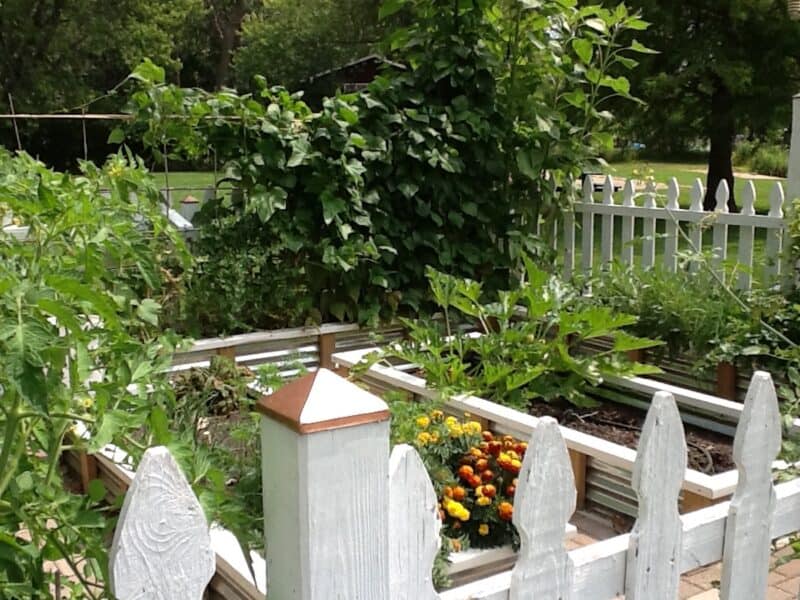


In my last “5 Tips from the Garden Bench” series, I talked about the Raspberry bush that I planted last year. Well, turns out it’s a blackberry and it is growing like crazy but it hasn’t produced hardly any fruit. Either that or the birds are getting to it before me. Maybe it needs another year to grow before it starts giving any significant amount of berries.
I hope you find these 5 Tips from The Garden Bench helpful. If you have a great tip that you use, please share them in the comments below.
Happy Gardening!
Peace and Love,

Are you looking for ideas to refresh your porch for fall? You can find them HERE

A great way to save this article is to save it to your Pinterest boards. You can find the pin button in the top left corner of the photo below. Also, don’t forget to follow me on Pinterest


Where you can find me







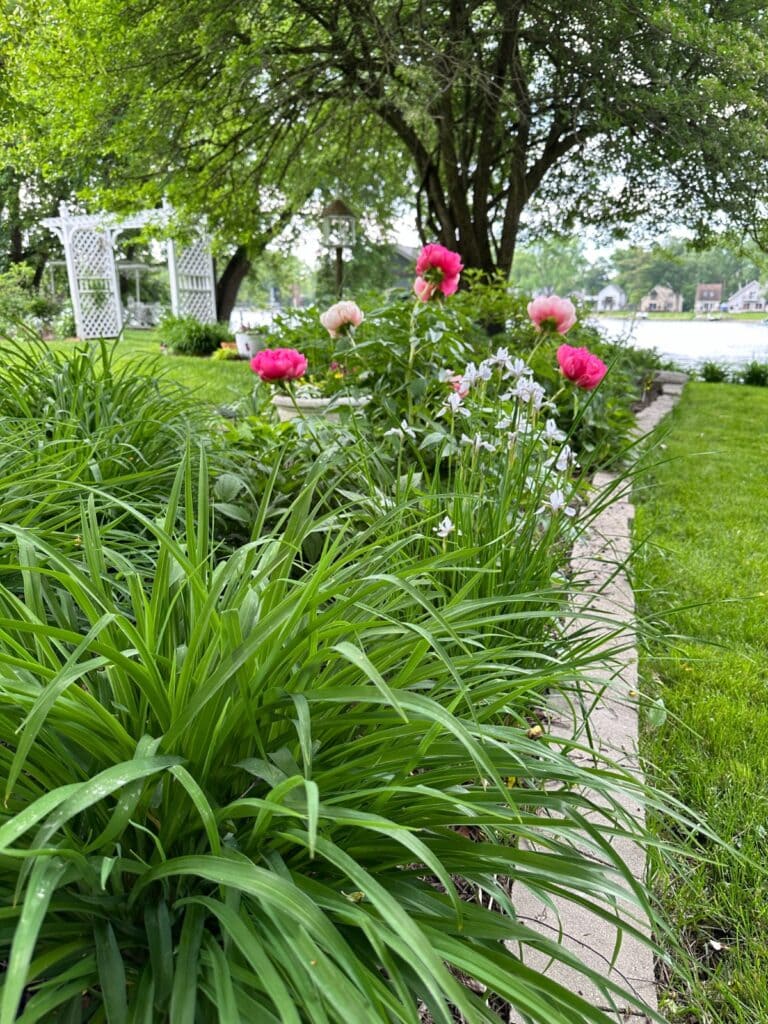





Great tips. Your newsletter and posts look gorgeous.
Thank you my friend!
Lynn, great tips about tomato blight. Our gardening seasons are very different so all my tomatoes were harvested in June. Now the garden is nearly fallow as I picked the last watermelon and for some reason had butternut squash (which I didn’t plant) show up in the summer garden. Basil is still alive but nearly everything else is burned out. Will pull all the plants and let it rest until fall planting which happens here in late September/October. Love seeing your garden!
Hi Mary –
I had to go check where you live. AZ! You do have a much different growth cycle. Yes, I’m just getting red tomatoes now (what little I might have this year). I sometimes get random plants like pumpkins and squash. I think the birds plant them for me! How fun to have a garden almost year round. Once mine is done it’s cleaned up for the year. The only thing I plant in the fall is my garlic as that survives the winters. I would love to have you on my Podcast sometime and we can discuss the differences in our gardens.
Lynn, these are such helpful gardening tips! My friend is currently dealing with tomato blight and I will definitely share your post with her. I also plan on following your advice to divide some of my perennials this weekend. I am excited to feature your post and share it at this week’s Tuesday Turn About link party. Thank you so much for sharing!
Thank you Lynne for the kind words and for sharing my post on your link party!
I have clarifying questions on the recipe. It says it mashes a gallon of spray when it only had 1qt 2Tbsp of ingredients? Just verifying that the ingredients are correct. ????
Then you for the tips on blight!
I’m in zone 4a (WI) and I swear my tomatoes have only started ripening in the last month (less my cherry tomatoes). It’s been such a weird year! Even my early girls, which were (well established and) in the ground in May!
Baffling! But I ended up with night, despite using a soaker hose at soil level (most of the time), watering in the morning (again, most of the time), trimming lower leaves, and then when I saw the blight immediately removing affected leaves. ???? and it was in a new garden bed!! I have no idea what’s in going to put tomatoes next year because they took half the new raised bed! ????
Dani
Thanks for catching that! The recipe is for one quart. My tomatoes have been so weird this year too. I’ve been battling the blight for several years. I had my best crop last year when we rotated and also removed all the soil and put in new. As much as it kills me I think I’m going to have to take a year break from the tomatoes and hope that gets rid of it.
I do everything right too! We irrigate from the bottom, I cut off all the bottom leaves, and as soon as I see it, I take the leaves off but this year, I couldn’t keep up. Then I went away for a week and it literally took over.
Where in WI do you live? We are only about a half hour from the border so we go to WI a lot.